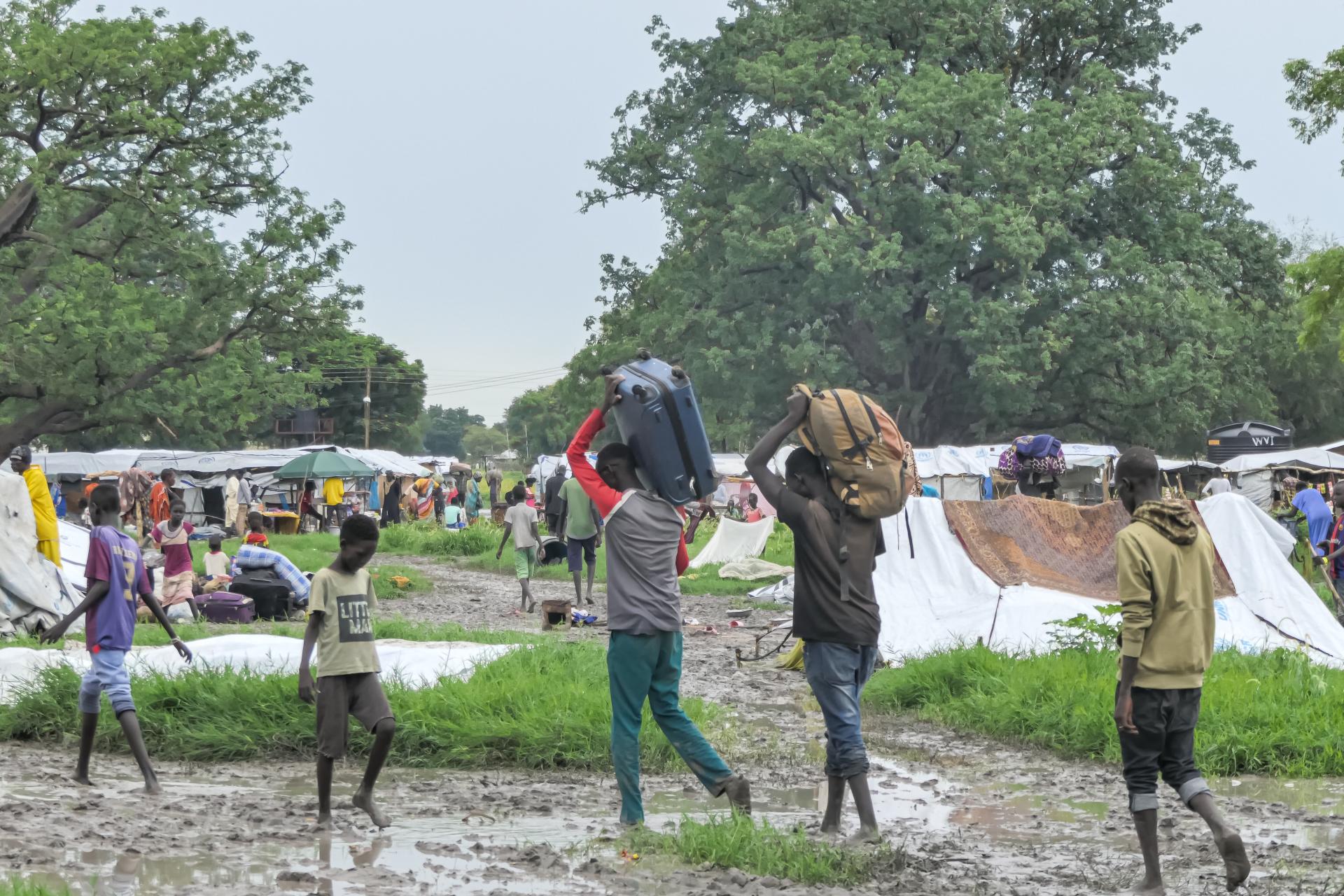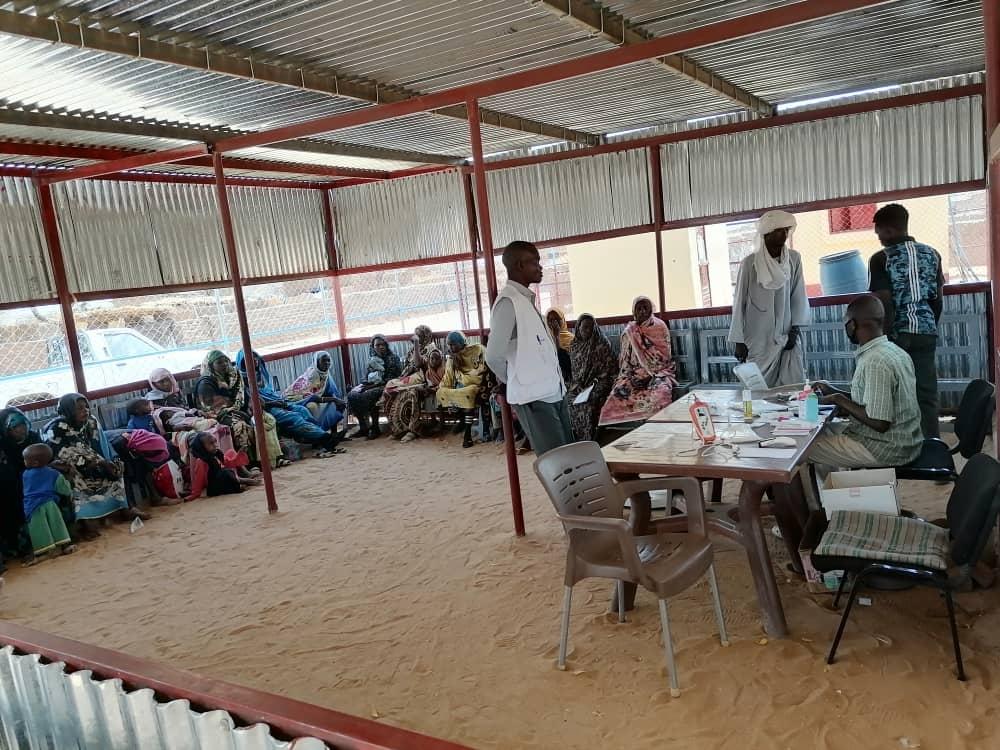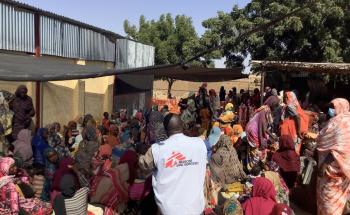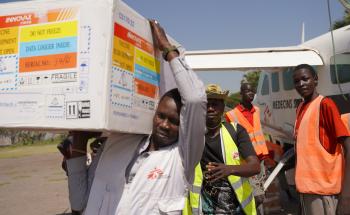Humanitarian organisations must urgently scale up their response to ease the difficulties faced by people fleeing the conflict from Sudan to Upper Nile state in South Sudan, says Doctors without Borders (MSF). Thousands of returnees have been arriving sick and exhausted at the Bulukat transit centre in Malakal, northeastern South Sudan, after travelling almost 72 hours by boats on the White Nile River.
The Bulukat transit centre hosts about 5,000 people at any time, many waiting weeks for onward transfers. People lack sufficient food, shelter or healthcare, as they live in temporary tents or out in the open during the rainy season.
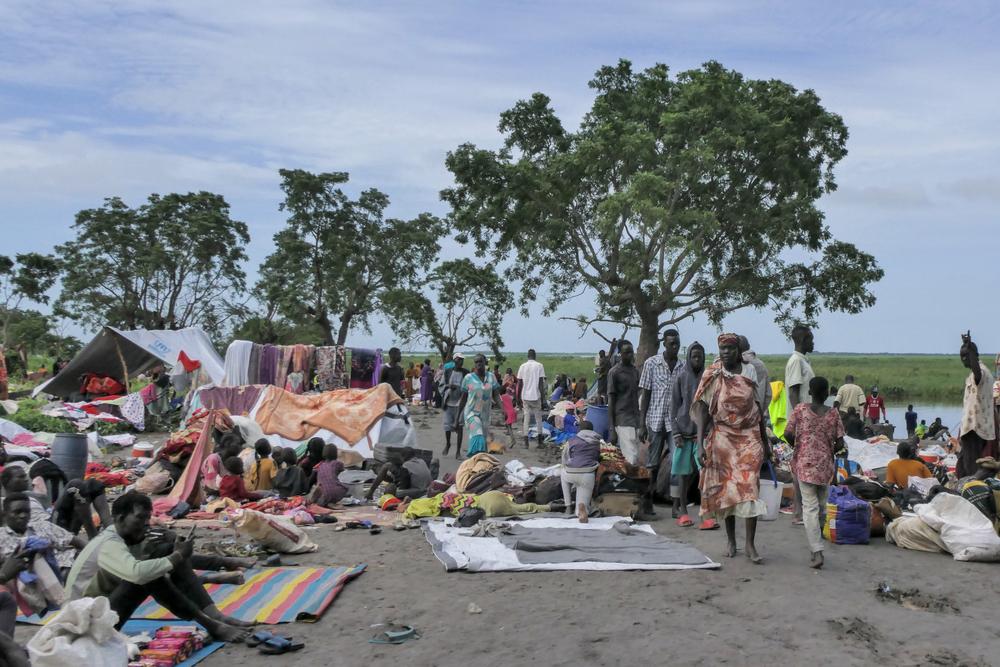
The mortality rate in our facilities is extremely high, as the patients arrive so late and sick that the medical teams at times are unable to save lives.Luz Linares, MSF Head of Mission in South Sudan
“In our facilities in Malakal, we are recording an alarming rise in the number of measles and malnutrition cases, especially amongst children,” says Luz Linares, MSF Head of Mission in South Sudan. “The mortality rate in our facilities is extremely high, as the patients arrive so late and sick that the medical teams at times are unable to save lives.”
“There must be an immediate scale up of medical and humanitarian response by humanitarian groups for people arriving from Sudan, from the time of entry into South Sudan, until their relocation to the areas of their choice”, says Linares.
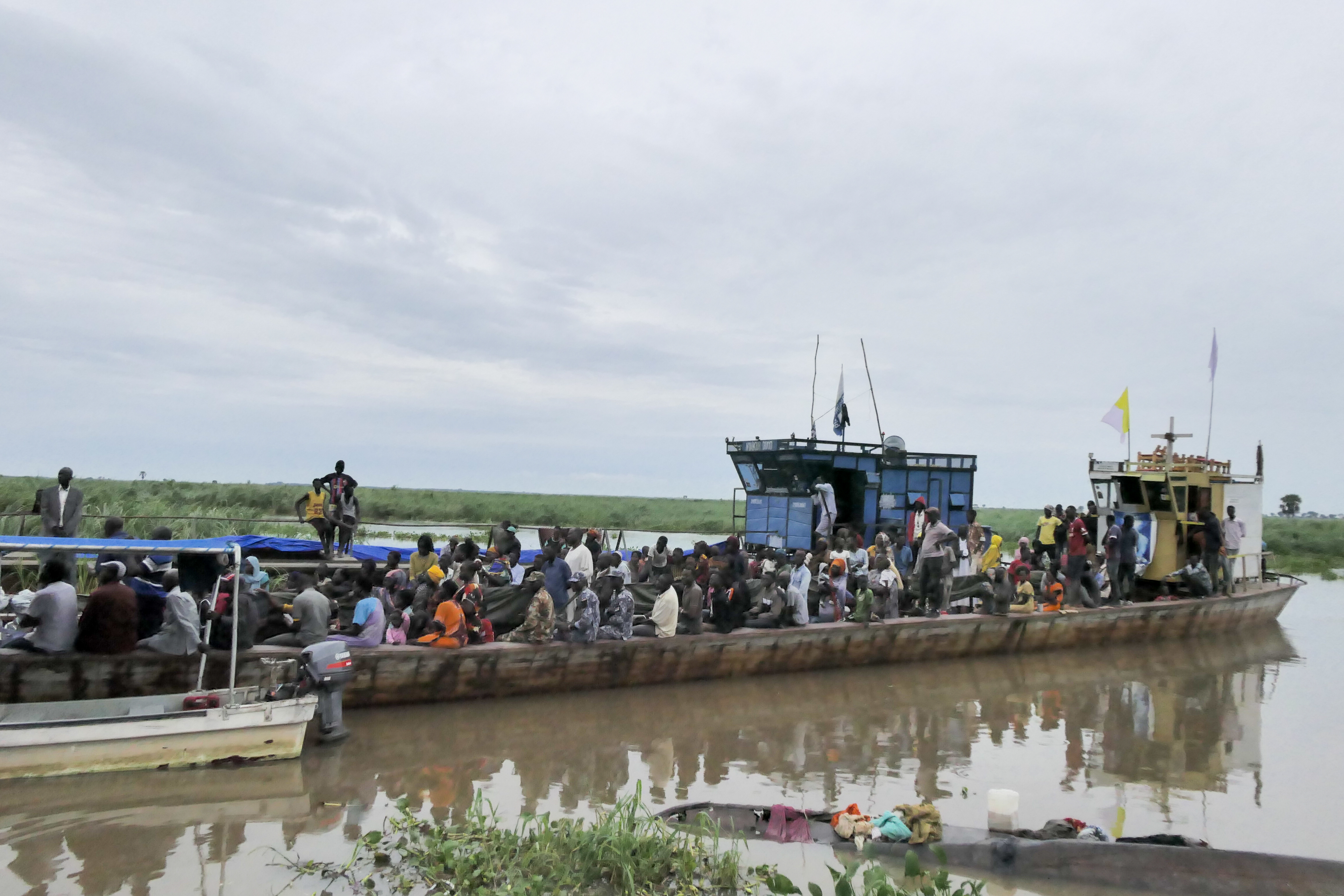
Out of the total 245,000 people who have entered South Sudan to seek refuge since April, about 198,000 have crossed through Renk, in the far northeast of the country, according to the United Nations. Around 50 per cent of these people have expressed their intention to stay within the Upper Nile state, an area that is already badly affected by the inter-communal conflict and lack of healthcare services.
People returning from Sudan, also known as returnees, often arrive at the border exhausted; they usually have no money left to continue travelling further or with which to survive, relying on humanitarian aid. Food is the most significant problem people in Bulukat face. Returnees are given a mere US$14 per person to buy a week’s worth of food, which is very little compared to the high food prices in the area. Moreover, most of them end up waiting in the transit centre for several weeks, sometimes months, without additional assistance for food and supplies to survive.
We need shelter, and we also need good living conditions. We do not have food here. We do not have soap. We also need mosquito nets.Akuch Deng, Sudan refugee
“We need shelter, and we also need good living conditions. We do not have food here. We do not have soap. We also need mosquito nets,” says Akuch Deng, who travelled from Sudan with her two children. “The small cash they give here is not enough in the market.”
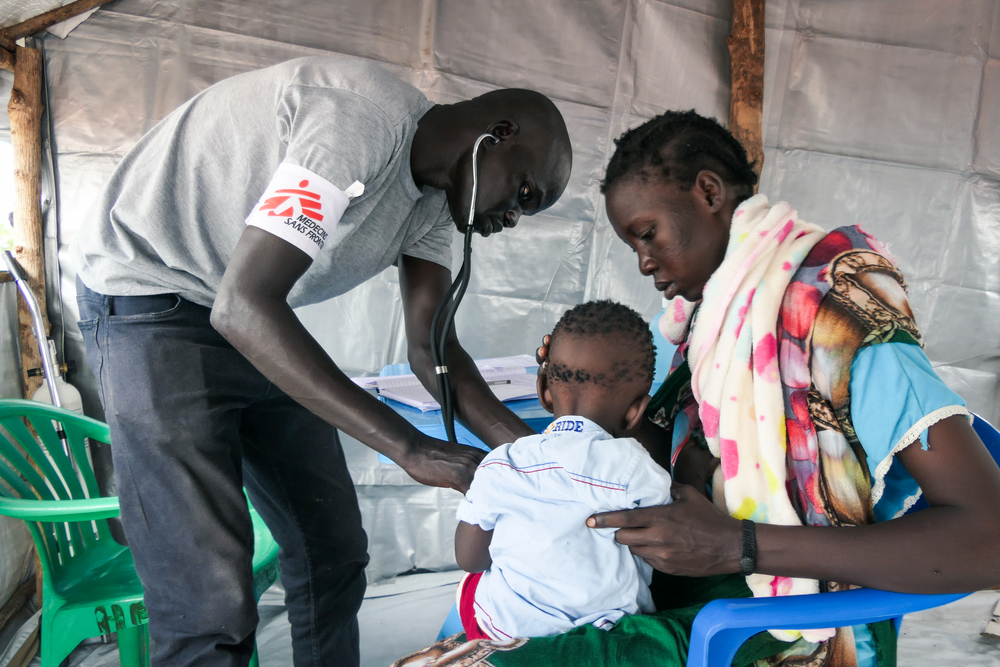
Sudan refugees in the Upper Nile State of South Sudan
Since July, MSF has run a mobile clinic in the transit centre, providing over 100 medical consultations every day. Our teams are seeing and treating increasing numbers of measles cases and an alarming number of malnourished children. Meanwhile, those requiring hospital care are referred to the MSF hospital in Malakal town.
“What I have witnessed is really terrible, especially the living conditions,” says Apayi Dawa, MSF Nurse Supervisor in Bulukat. “People don't have shelters. So, when it rains, the shelters are washed away by the water. We have people dying on the boats. They also have very limited food to eat.”
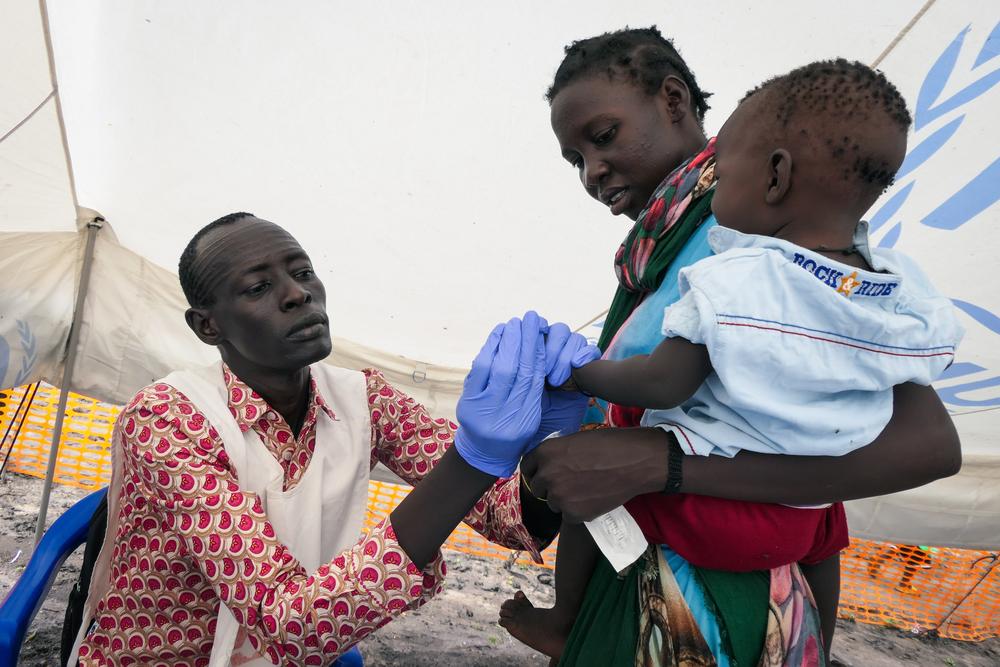
MSF teams are struggling to meet the needs of the thousands of returnees in Bulukat. Our teams receive young children on a daily basis who have travelled from Renk while sick. As a result, the MSF paediatric hospital in Malakal, whose capacity has recently been extended from 70 to 121 beds, faces a very high 5.95% mortality rate.
Since April, for three consecutive months, a remarkable increase in admissions to the paediatric ward has been recorded. 184 patients were admitted in July, as compared to 114 in April. Additionally, a significant 75 per cent surge in admissions was observed in July in the inpatient therapeutic feeding centre (ITFC) for malnourished children.
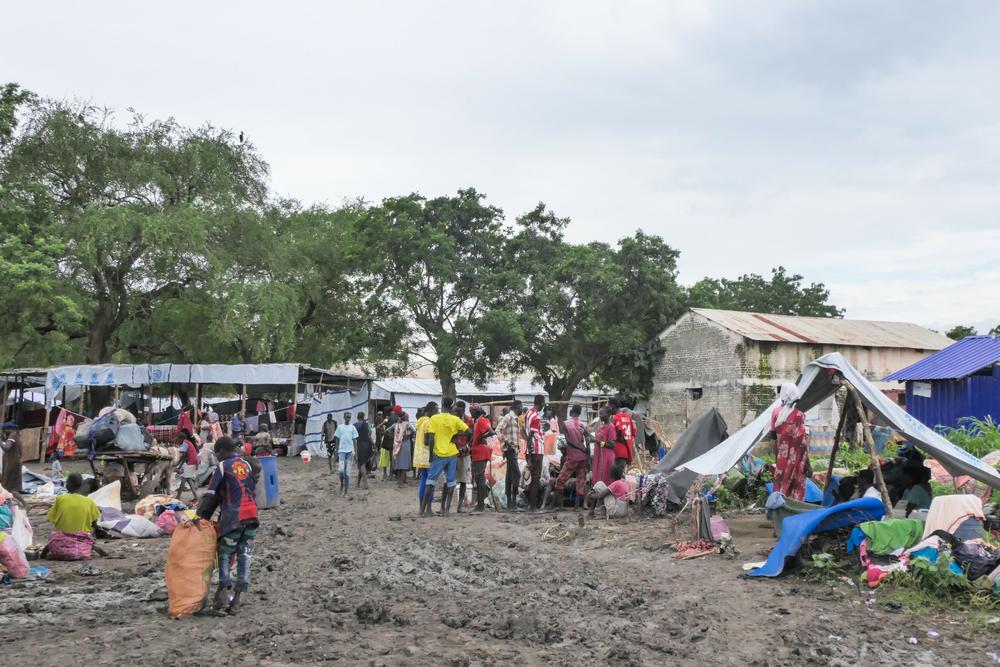
In Renk too, MSF teams are providing basic healthcare through two mobile clinics, as well as supporting a paediatric ward and treatment facilities for patients with measles and malnutrition.
There is a risk of a cholera outbreak in such circumstances. It could be catastrophic. That's why we have to push all humanitarian groups to do more to prevent a worsening of the crisis.Nuru Katikomu, MSF Emergency Field Coordinator in Bulukat.
“With the rainy season, we can face a big outbreak of malaria if nothing is done in terms of proper shelter and mosquito nets distribution,” says Nuru Katikomu, MSF Emergency Field Coordinator in Bulukat. “On top of that, there is risk of a cholera outbreak in such circumstances. It could be catastrophic. That's why we have to push all humanitarian groups to do more to prevent a worsening of the crisis.”
As the measles and nutrition situations are already alarming, a more complex health crisis is looming with the arrival of the rainy season and poor living conditions. MSF calls for the urgent improvement of screening activities in Renk – that should be operating 24/7 – to prevent severely sick patients from being sent to Bulukat before they get medical attention. Moreover, there is an immediate and urgent need to scale up response for improved, coordinated, and prompt assistance for basic necessities, particularly food, shelter, hygiene and sanitation.
